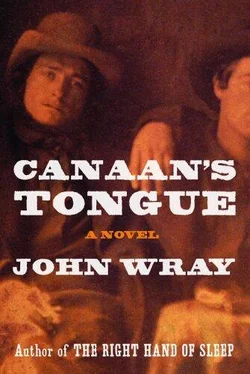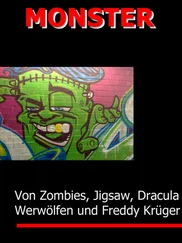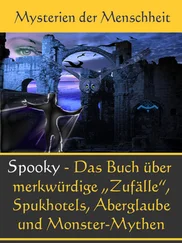The Colonel sat up straight as a rod. “ Not steal them? Do you mean to tell us, M—, that we’ve come all this way—”
The R— raised his hands and the map closed with a snap. In this pose, tidy in his costly clothes, he put me in mind of a well-scrubbed toddler waiting on his Sunday porridge. He brought his palms together then, as if saying grace, and the likeness was complete. But it bewitched me regardless.
“What I mean, Colonel, is that we’re going to borrow them.”
OVER THE NEXT HOUR each guest learned the reason for his being at table. No end of cash, it was said and repeated, had been put behind the venture. The stock-holders would know next to nothing of the goings-on—; only that slaves were being dealt in for a profit, and that the profit, in this case, was near one-hundred percent. The rest, the R— said with a wink, would be left to their fancy and leisure.
The R— himself would recruit the mulattoes—“strikers,” he called them — whose names would be known to him alone. A ramshackle property of Asa Trist’s on the Cane River would serve as a concentration point, as the R— called it, before the shippage north. Kennedy and Virgil, who’d spent time on the river, would manage the passage, each in their own boats—; Beauregard would see that the army left those boats alone. The Colonel, who made his home in Memphis, would deal with the up-river buyers. When sprung the second time, the runaways would come out of the boat’s hold expecting to see St. Louis, or Cincinnati—; instead they’d find the plantation they’d run off from. Goodman Harvey — the lisper — was to minister to the runaways—: the R— spoke of him as a doctor. He’d played some role, it seemed, in the conception of the thing—; but the R— made a point of paying him no mind.
At the end they’d all been accounted for except the ghost in the corner.
“What’ll hith job be, then?” Harvey said, pointing at him. The ghost gave a grin. He might have been grinning at anybody, his eyes were so flat. But he was grinning at nobody but the R—.
“Me?” said the ghost.
“Gentlemen—: our Parson,” the R— said. “Parson’s handy with niggers.”
Nobody gave a coo.
“Well!” the R— said. “Are we ready to adjourn?”
There was never any yessing to the plan, but they were for it just the same. Every one of them was for it. They’d agreed in themselves, before they came, to whatever the R— would offer them. The reason was different, each to each—: some were spiteful, some were greedy, some were cowardly, some were sly. But each had a hollow part that this business would fill.
One by one they got to their feet, straightened their cravats, and went downstairs. Some of their glasses were empty, some were full. I marveled at the coziness of it all. All of them kept quiet except for Beauregard, who was set on having sport with the R—.
“Neat enough, M—, I grant you,” he said. He stopped as he passed and took the R— by the shoulder. The difference in their size was fit to laugh over, and Beauregard savored it in a way that showed the weakness in him. “Neat enough,” he said again. “If no war breaks out, it should turn a pretty profit.”
“War?” squawked Trist. “What war? With Mexico?”
“I think the lieutenant is thinking of a war between the states, Asa,” the R— said, looking up at Beauregard. “An Abolitionist war.”
“I can’t see how that would affect us, ” Virgil said. “Such a fight would center on the territories, surely. We’d have breathing-room regardless.”
Beauregard raised his eyebrows. “Does it speak?”
The R— made a subtle movement and Beauregard’s hand fell off his shoulder. “Mr. Beauregard, there is something I wished to mention to you,” he said. “But I’d forgotten it till now.”
Beauregard kept his eyes on Virgil. “Of course, M—. What was it?”
“Your waist-coat. It’s exceeding pretty.”
Beauregard gave a laugh. “A happy accident, sir—; I can’t take credit for it. There’s a tailor in Exchange Alley, Christian name of Jessup—”
“Don’t, in the future, wear apparel with decided colors,” the R— said, holding up a finger. “Or with pronounced patterns, either. What have men to do with pretty things?”
Beauregard blinked at him a moment. “And what the devil, sir, have you to do with my choice of—”
“It’s true that a waist-coat should be becoming, Lieutenant—; but also that it should lend dignity to the figure. A man’s costume should never be ornamental, pretty, or capricious, except at a fancy-dress ball.”
Beauregard let out a breath. Then he took a half-step backwards and put his right hand into his pocket. I looked from one of them to the other, thinking there’d be an affair of honor under the oaks next morning sure as I breathed. Then a long gray hand came to rest on Beauregard’s shoulder and he spun about as though a wasp had stung him. Parson stood behind him, as tall again to Beauregard as Beauregard was to the R—.
“What do you want?” Beauregard said, stepping back. His voice was no louder than a sigh.
“Have you ever laid eyes on a true idiot, Lieutenant?” Parson said. “A true idiot is a creature of heaven, and as such casts no shadow upon the ground.”
Beauregard opened his mouth and shut it. “I’m afraid,” he said at last. “I’m afraid that I don’t—”
“Can you describe your own shadow for me?” Parson said, the smile fixed slant-wise on his face.
“No, sir, I cannot,” Beauregard said. “Now, if you’ll permit—”
“By all means, Lieutenant,” Parson said. “But attend to what I tell you—: there is a second world alongside and atop the one you cherish. And if you think I am speaking of the kingdom of heaven, then you, Pierre Gustave Toutant Beauregard, are but a finger-puppet.”
God help me if I understood this, but I laughed anyhow. The R— looked at me and winked. Beauregard nodded once, vaguely, then slipped from Parson’s hold.
“I’ll be in the bar, M—,” he said into his whiskers. He gave me a hard look as he passed.
When he was gone Virgil and the R— and Parson stood close together. “Thank our Parson, Virgil,” the R— said.
“I’m grateful to you, sir,” said Virgil. “If not for your intercession, I fear—”
“If he speaks of you that way again, kill him,” Parson said.
“Sir?” said Virgil. His neck went paler still.
The R— laughed. “Our boy would never. He has our best interests in mind.”
“Kill him,” said Parson. He smiled at Virgil in a motherly way.
“Pay no attention, Kansas,” the R— said, leading Parson off.
That left me alone with Virgil. He stood stock-still, staring out the door, opening his hands and closing them. But at last he condescended to remember me.
“They think I wouldn’t,” he said in a small voice.
I took his hand in mine. “Have you ever killed a man, Mr. Ball?”
“One thinks I’m too clever,” he said. “The other thinks I’m too dim.”
“Both think you’re too weak,” I said. Lord forgive me now for saying it. I was young then, and full of spite, and thought cowardice the most shameful of men’s failings. “Are you as weak as they think?”
“I’m a servant,” he said, turning his dull face toward me. “I told you that.”
“I didn’t believe it,” I said. “But I believe it now.”
He seemed not to hear me. “It’s a wonderful thing to have a purpose, Miss Gilchrist—; to know what it is, and to follow it.” He hushed a moment. “My purpose is to serve.”
“And mine is to take your masters to bed,” I said. “I wish you a pleasant evening.”
Читать дальше












